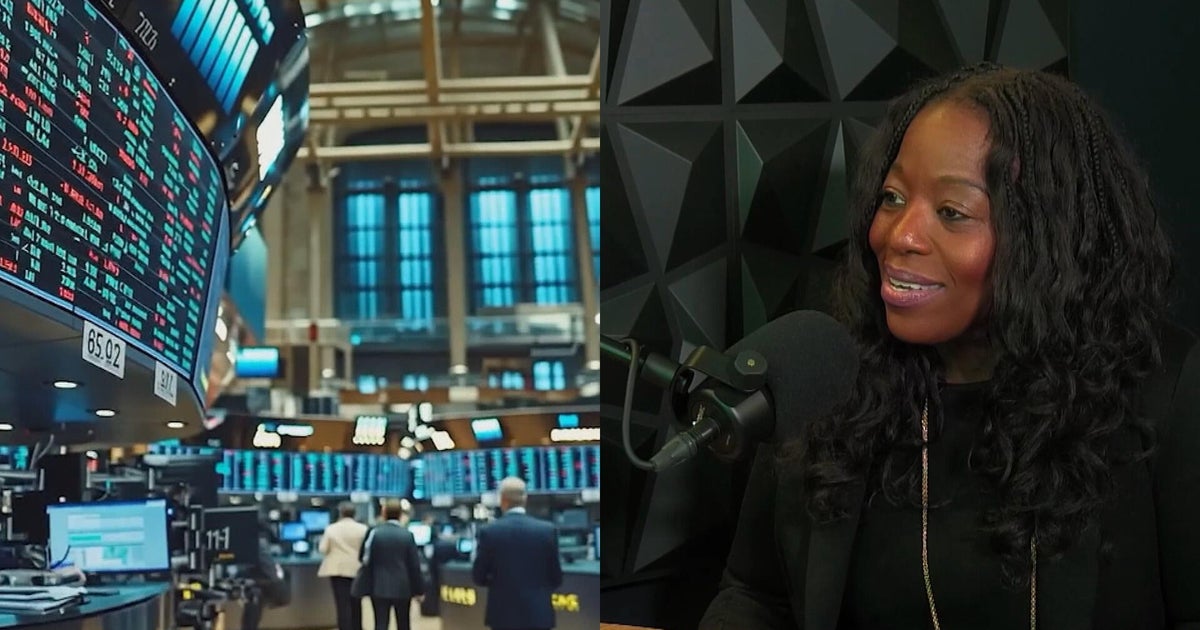Renewed Trade Tensions Send Stocks Plummeting
NEW YORK (CBS SF) -- Another flare-up in trade tensions between the U.S. and China sent the stock market sharply lower for the second time this week.
The Dow Jones industrial average lost 572 points Friday, having traded down as much as 767. It fell modestly for the week.
Caterpillar dropped 3.5 percent, the most in the Dow. Caterpillar and other industrial companies rely heavily on overseas sales and could suffer if commerce is curtailed by rising trade barriers.
The Dow recovered some of its worse losses to end down 2.3 percent at 23,932.
The S&P 500 fell 58 points, or 2.2 percent, to 2,604. The Nasdaq composite dropped 161 points, or 2.3 percent, to 6,915.
A looming trade war with China, escalated by President Donald Trump instructing the U.S. trade representative to consider slapping an additional $100 billion in tariffs on Chinese goods Thursday, helped spur the market woes.
Trump's surprise move came a day after Beijing announced plans to tax $50 billion in American products, including soybeans and small aircraft, in response to a U.S. move this week to slap tariffs on $50 billion in Chinese imports.
And it intensified what was already shaping up to be the biggest trade battle since World War II. Global financial markets had fallen sharply as the world's two biggest economies squared off over Beijing's aggressive trade tactics. But they had calmed down Wednesday and Thursday on hopes the U.S. and China would find a diplomatic solution.
Instead, the White House announced after the markets closed Thursday that Trump had instructed the Office of the United States Trade Representative to consider whether $100 billion of additional tariffs would be appropriate and, if so, to identify which products they should apply to. He's also instructed his secretary of agriculture "to implement a plan to protect our farmers and agricultural interests."
"China's illicit trade practices — ignored for years by Washington — have destroyed thousands of American factories and millions of American jobs," Trump said in a statement announcing the decision.
The latest escalation comes after the U.S. on Tuesday said it would impose 25 percent duties on $50 billion of imports from China, and China quickly retaliated by listing $50 billion of products that it could hit with its own 25 percent tariffs. The Chinese list Wednesday included soybeans, the biggest U.S. export to China, and aircraft up to 45 tons (41 metric tons) in weight. Also on the list were American beef, whiskey, passenger vehicles and industrial chemicals.
Earlier in the week, Beijing announced separate import duties on $3 billion of U.S. goods in response to the Trump administration's duties on all steel and aluminum imports, including from China.
U.S. officials have sought to downplay the threat of a broader trade dispute, saying a negotiated outcome is still possible. But economists warn that the tit-for-tat moves bear the hallmarks of a classic trade rift that could escalate. And already, tensions between the world's two biggest economies have rattled global stock markets.
A lower than expected jobs report also impacted the market.
U.S. employers added a modest 103,000 jobs in March after several months of robust gains, though the government's overall jobs report Friday suggested that the labor market remains fundamentally healthy.
The unemployment rate remained at 4.1 percent, a 17-year low, for a sixth straight month, the government said. Average hourly pay ticked up, climbing 2.7 percent compared with a year earlier.
The government also revised down its estimate of job growth for January and February by a combined 50,000. Still, over the past six months, employers have added a healthy average of 211,000 jobs, evidence that hiring in the United States remains strong and the economy on solid footing in its ninth year of recovery from the Great Recession.
The pullback in hiring last month was likely payback for an explosive gain in February, economists said. Employers added 326,000 jobs that month — the largest monthly haul in two years.
"Overall, looking through the volatility, employment growth is trending higher and wage growth is starting to heat up," said Paul Ashworth, an economist at Capital Economics.







